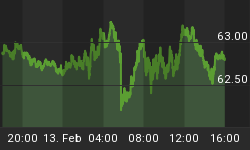By now it’s clear to all that Robinhood will take from the rich … what happens after that remains unclear, but retail investors will now have a chance to decide on their own as the disruptive zero-fee trading app prepares to go public.
Robinhood, the most popular trading app, especially among novice and young traders, said it will trade on the Nasdaq under the symbol HOOD.
With an initial offering price ranging between $38 and $42 per share, Robinhood is expected to reach up to a $32 billion valuation, which would make it worth more than two-thirds of companies on the S&P 500.
According to its amended prospectus, the company plans to sell 52.4 million shares in the IPO, with founders Vladimir Tenev and Baiju Bhatt selling another 2.6 million shares in the deal. After the IPO closes, they will still own 7.9% each.
Robinhood has been targeting an IPO since at least last year, but it’s been a bumpy road pot-holed with regulatory inquiries, including a hearing convened by the House Financial Services Committee.
Robinhood was last valued at $11.7 billion in its private fundraising round in September. In February, the company announced that it had raised a further $3.4 billion in a funding round.
The start-up grew from one million subscribers in 2016 to six million accounts in 2018. Just last year, Robinhood added 3 million accounts, with half of them first-time traders. Currently, it has more than 18 million.
The company was created by Tenev and Bhatt in 2013, serving as co-CEOs together and still own the majority of the company’s shares. Other notable investors include Ribbit Capital, ICONIQ Capital, Andreessen Horowitz, Sequoia, Index Ventures, and NEA.
Late last month, Robinhood was fined $70 million by financial regulators for misleading customers and causing them to lose millions of dollars.
The Financial Industry Regulatory Authority (FINRA) wrote in a complaint Robinhood had inflicted "widespread and significant harm" on millions of customers by providing them with false information about their investments.
Last September, the SEC was looking into Robinhood’s practice of selling clients’ orders on to high-frequency trading firms. Robinhood paid $65 million to settle the case.
Robinhood was also facing political and customer backlash because it temporarily curbed trading in GameStop and other stocks.
Unlike some recent IPOs from this year and last, Robinhood operated with profit in 2020 and generated a net income of $7.45 million on net revenue of $959 million. In the first quarter of this year, Robinhood generated $522 million in revenue, up 309% from earned in the first quarter last year.
Robinhood makes approximately 50% of its money through a system known as payment for order flow, which is part of the “steal from the rich, give to the poor” controversy. Whenever someone executes a stock trade on the Robinhood platform, the company gets the actual stock from a third-party known as a “market maker.” The market maker sells the stock to Robinhood for a small premium compared to what it paid for the stock.
Repeated millions of times over, those tiny premiums add up nicely.
According to some estimates, Robinhood makes nearly $19,000 from selling user orders per dollar in the average user’s account per one quarter. In comparison, older brokers made much less per user account, with TD Ameritrade making $1,881, E-Trade $1,326, and Charles Schwab $195.

















